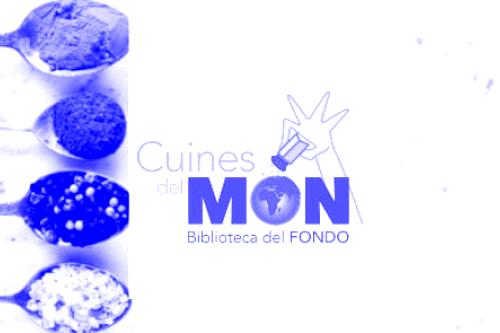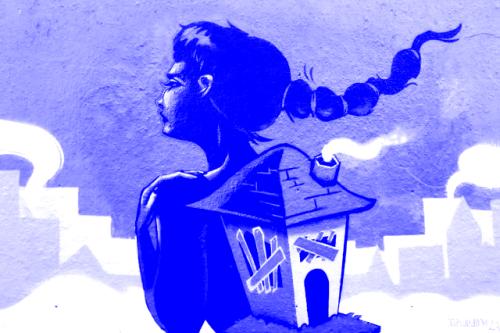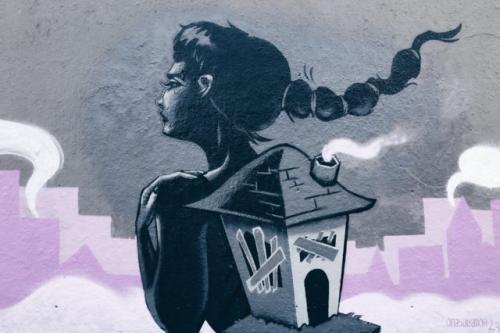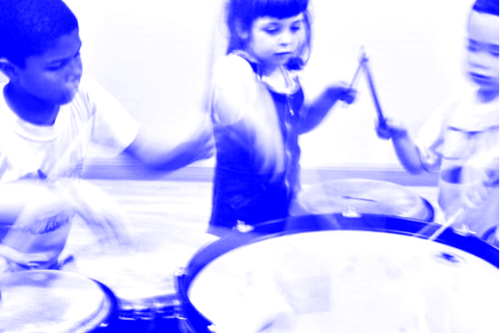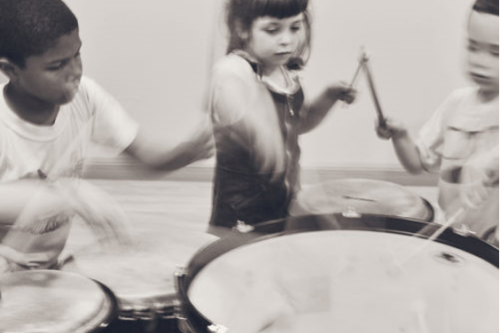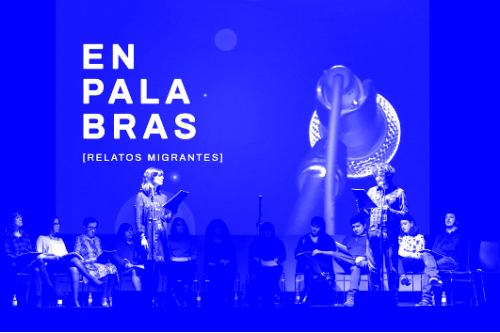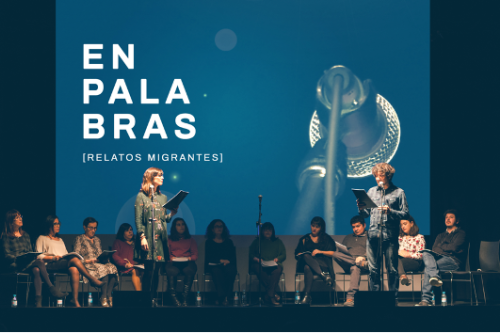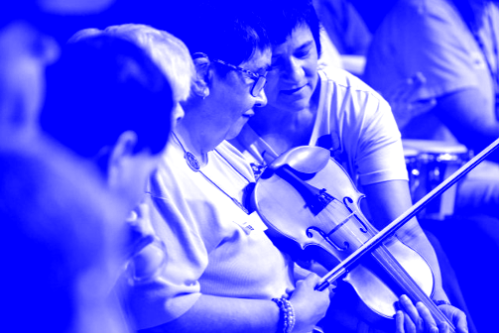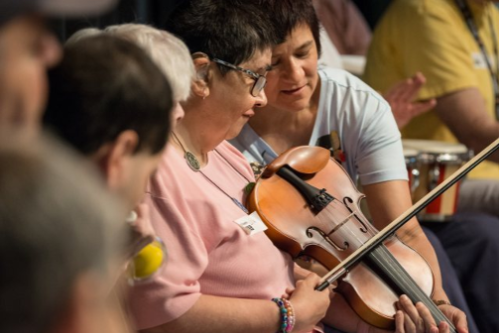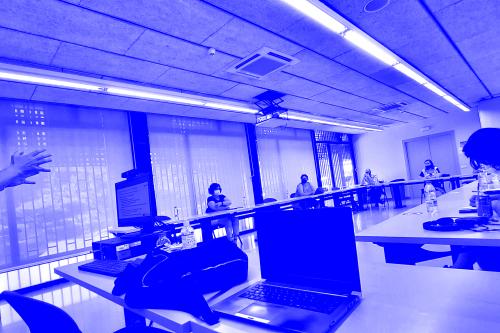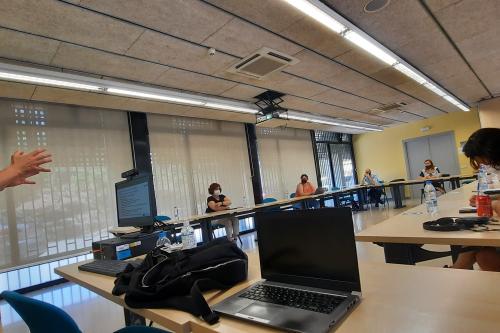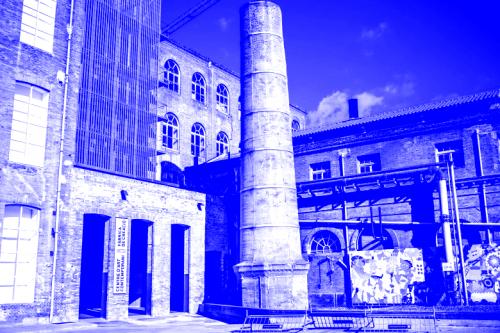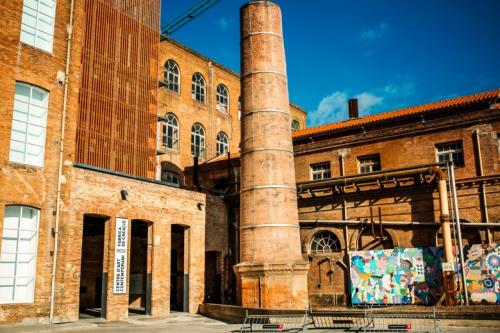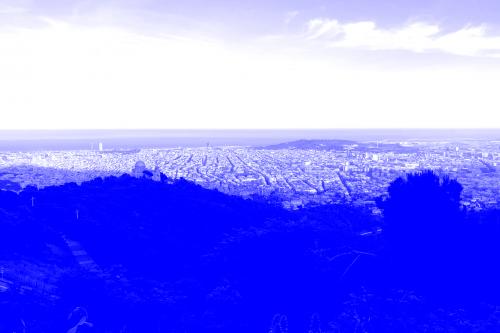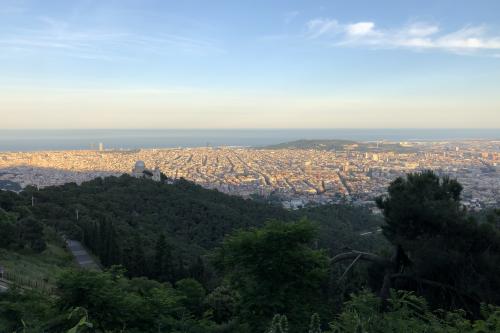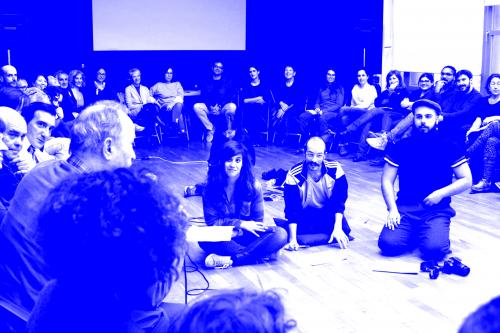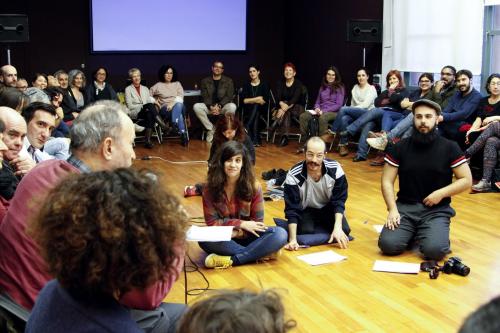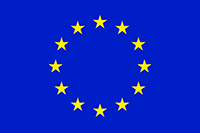Barcelona
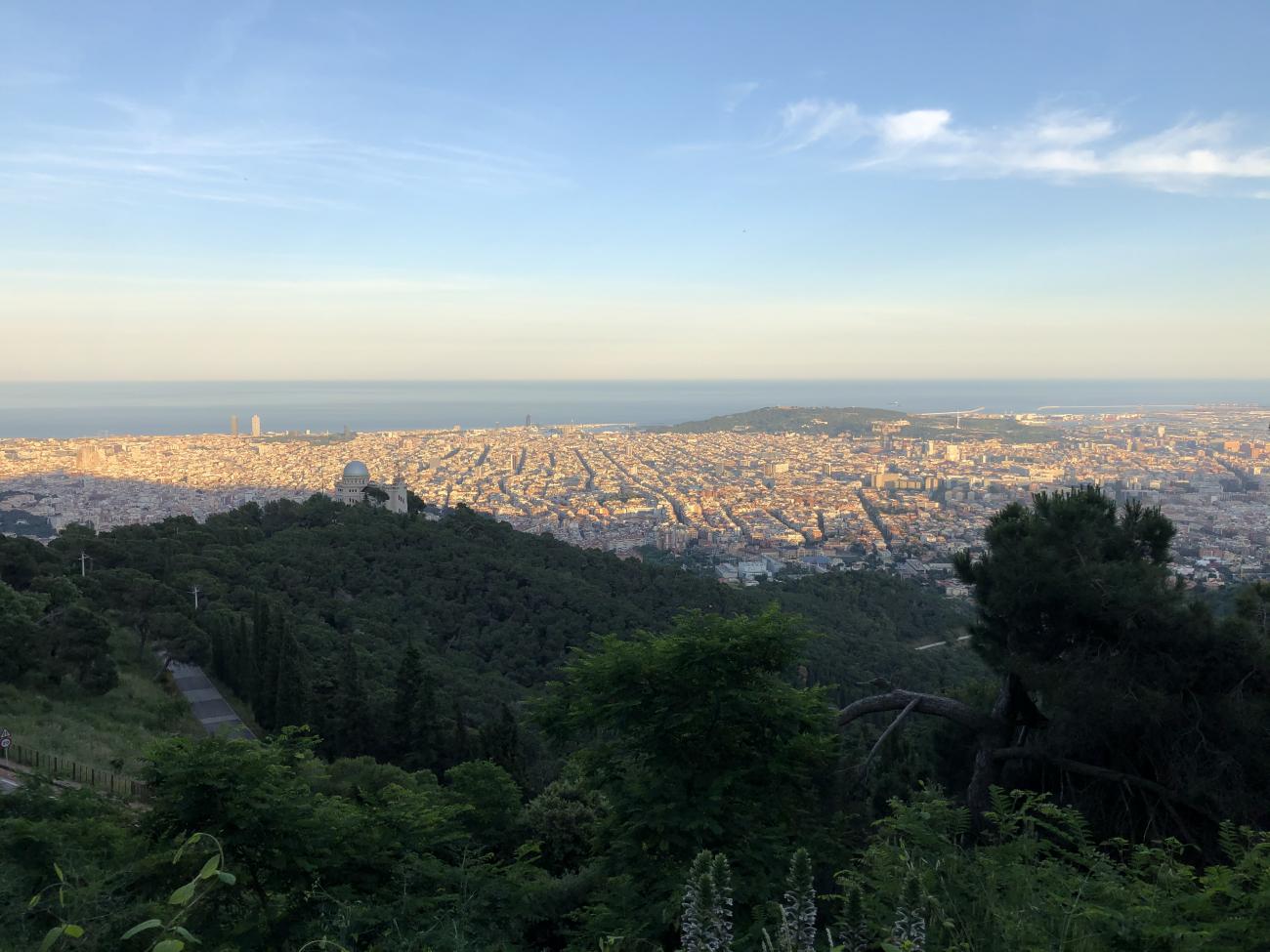
The Mediterranean city of Barcelona, the capital of Catalan culture, boasts an immense cultural heritage and is the world’s only city with nine UNESCO World Heritage Sites, seven of which are works by the architect Antoni Gaudí. A plural open city with two official languages (Catalan and Spanish), Barcelona is the central nucleus of the metropolitan area of Barcelona, which ranks among the top 10 European urban agglomerations in terms of population and employment.
Barcelona is known for designing strategies and measures conceived to support a creative city model (with the art factories programme) and a creative entrepreneurship (with the Canòdrom Creative Industries Research Park) and for fostering the use of the public space as a cultural venue (for example in La Mercè Arts de Carrerstreet art festival and the Llum Barcelona Light Festival).
Barcelona is home to various prominent museums attracting millions of visitors every year, such as the Picasso Museum, the Joan Miró Foundation, the National Art Museum of Catalonia and the Contemporary Art Museum of Barcelona, which shelter valuable works by internationally celebrated artists. The city hosts each year more than 170 cultural festivals, which focus on all fields of endeavour — music, performing arts, literature and cinema, etc. — and draw over two million participants. Many of these festivals are of international standing, like the Sónar Festival and the Primavera Sound Festival.
Barcelona is an ‘iCapital’ of Europe. In 2014, the European Commission awarded the city the European Capital of Innovation Prize for implementing new technologies aimed to bring the city closer to its citizens.
In 2015, Barcelona was designated a UNESCO Creative City of Literature for its efforts to promote reading and the publishing field, involving the library network, literary festivals and the publishing industry.
Key policy crossover
BCNLab is a space dedicated to the exploration and experimentation of new forms of innovation, with co-creation and civic participation as key elements. The BCNLab programme outlines an open innovation ecosystem based on cultural innovation and civic participation (according to the 4-helix model: Public sector - Academia - Enterprises - Society). This ecosystem postulates the implementation of a city lab for co-creation and validation of new experiments, pilot tests and cultural services with citizen participation. The Cross-cutting Space for Culture and Education of Barcelona has been created with the aim to reduce inequality, fragmentation between the cultural and educational systems, and to improve the coordination among administrations. The city council is developing common evaluation indicators on the social impact of culture, with the objective to offer comparable data, capable to orientate public policies. Among participatory actions with citizens promoted by the municipal Institut de Cultura, it has to be highlighted the participatory process on urban characteristics and future uses of Fabra i Coats creative factory.
|
No. |
Name of the project |
Name of the organisation |
Short description |
Website |
|
1 |
Apropa Cultura |
Orchestra and Auditorium of Barcelona Consortium |
Apropa Cultura is a programme oriented to fostering and diversifying access to cultural venues, making their programming accessible and comprehensible for everyone, thanks to a relevant effort of mediation and communication. It addresses disadvantaged and vulnerable social collectives, who may face entry barriers (people with intellectual disability, people with physical impairment, people with mental issues, women, the elderly, addicts, or migrants). The aim is to democratise culture, with all its transforming power, and showing another panorama to the citizens who could not usually enjoy access to culture. These activities pretend to help these collectives in their path towards inclusion and equality. |
https://www.apropacultura.org/en |
|
2 |
En Palabras [Relatos migrantes] |
Connectacts Cooperative |
En Palabras [Relatos migrantes] is a collective project of literary creation and editing, that reunites refugees, migrants, and writers from all around Latin America who are residents in Barcelona. Its aim is to develop a project of communitarian documentation and of construction of memory around the situations of violence and rights violation that oblige people from the Latin America region to abandon their native lands, and around the difficulties they face during the travel and when they arrive at the host destination. |
https://enpalabrasbcn.com/ |
|
3 |
Xamfrà |
L'ARC Música Foundation |
Created in 2004, Xamfrà is a socio-educational centre that uses the arts to guarantee the right of access to cultural and artistic practice for all citizens, according to the objectives of the L’ARC Música Foundation. These objectives revolve around principles of equality/equity, recognition of diversity, positive interaction, diverse participation, and feelings of belonging. Since 2014, Xamfrà has been dedicated to the promotion of social inclusion through music, dance and performing arts. |
https://xamfra.net/en/ |
|
4 |
Womart |
Rebobinart Association |
Womart is a project aimed at claiming the need to recognise femenine talent in visual arts, in general, and in street art (or art in public space), in particular. The lack of gender equality in the institutional circuits of visual arts reveals that there still exists a glass ceiling that prevents achieving real equality in terms of recognition of women professional artists. Womart was born in response to this reality, with the objective to make visible and acknowledge the artistic talent of women creators and to foster gender equality in all visual arts’ disciplines. |
https://www.rebobinart.com/en/projects/womart/ |
|
5 |
Explainers |
La Caixa Foundation |
Explainers is a project carried out at CosmoCaixa, a science museum that is part of La Caixa Bank Foundation. The programme was inspired by the initiative of Science Museums in the USA, that since 1969 is the flagship programme of the Exploratorium in San Francisco. Explainers are students between 15 and 18 years old of different schools of Barcelona, that accompany the museum visitors with didactic and creative explanations. The programme offers the opportunity to discover science from a different perspective, while practicing competences and skills such as teamwork, communication, adaptation to change, commitment to a project, creativity, autonomy, etc. |
https://www.explainerscosmocaixa.com/en/ |
|
6 |
Primer Cinema |
La Caixa Foundation |
Primer Cinema is an audiovisual educational pilot project. It was born from educational experiences in the audiovisual area and especially after the contest and educational project “Participa Méliès”. Primer Cinema proposes to school professors to take part with their students in an educational project focused on the audiovisual medium, and the introduction to this language (mixing mute cinema and special effects), to promote methodologies that reinforce transversality among arts and knowledge and strengthen collective creation dynamics, while working on questions of digital citizenship, in particular related to dissemination tasks. |
https://educaixa.org/ca/-/primer-cinema- |
|
7 |
ART i PART |
ICUB - Culture Institute of Barcelona |
ART i PART communitarian artistic creation programme in the neighbourhoods was an initiative of the City of Barcelona, managed through its Cultural Institute (ICUB). It invited neighbours of the city to take part in a communitarian artistic proposal where they took part as creators. In 2018, ART i PART developed the first edition in five neighbourhoods of the city, whilst in 2019 it focused on other three neighbourhoods: Besòs, Gòtic and Poble Sec. |
https://comuart.com/en/projects/art-i-part/ |
|
8 |
Basket Beat |
Basket Beat Association |
Basket Beat is an entity, a project and a methodology to accompany people, especially the less advantaged ones, in their personal growth through music creation and learning with basketballs. The main goal is to foster the meeting among people and critical thinking, as well as accompanying the institutions and venues they work with. They organise their work around three areas: 1) socio-educational workshops in schools, institutions, prison facilities, public venues, etc. 2) research and publications, as well as training sessions for students and professionals on the social use of arts, on their methodology and on the rethinking of the professional role. 3) the “basketball orchestra”, which provides career opportunities for young people and is used also as a team-building tool.. In this context, FAACCC (Community Arts Festival) was born, following and giving recognition to several cultural proposals with the aim to become a “radical” meeting among neighbours, professionals, organisations, academics, institutions and students around cultural participation and community arts. |
https://www.basketbeat.org/ |
|
9 |
BiblioLab Cuines del Món |
Fondo library |
Bibliolab Cuines del Món had 2 different projects: Cuinem Santa Coloma (2018-2020) and Cuina Oberta (2020-2021). Cuinem Santa Coloma was born from the introduction of a kitchen in the Biblioteca del Fondo (Fondo library), generating a number of activities that get citizens closer to the venue of the library. This will to get all publics closer to the venue accounts the diversity, in terms of culture, ages, geographical origins, of the population of the Fondo neighbourhood. Tales and stories from all over the world are used to work the bond with children. Cuina Oberta proposes the creation and dynamisation of a user-friendly and inclusive space to reconnect with the gastronomy and local food. The programme aimed at promoting values of health, care, sustainability and culture, through the collaborative design of activities and the involvement of different citizens and collectives. |
https://bibliotecavirtual.diba.cat/detall-fons-especial/-/detall/gdD7/FONS_ESPECIAL/15755753/27703586 |
|
10 |
ISC2: BiblioLab on social innovation and citizen science in territorial transformation in the Vallès Occidental |
3 public libraries of the Valles Occidental: Central Library in Cerdanyola del Vallès, Vapor Badia Library in Sabadell, Volpelleres Miquel Batllori Library in Sant Cugat del Vallès. |
The project aims at maintaining the active role of libraries as an engine of social transformation and a space where creating communities that foster processes of open participatory research (citizen science) and addressed to solve local challenges. At the same time, it aims at empowering librarians with tools and methodologies needed for facing the change. One of the challenges identified was “Quality of air”: the idea is to get citizens closer to the current reality of air pollution, within the wider framework of climate emergency. The objective is to adapt public libraries to cultural and social changes that arise from the digital society, favouring the creation of collaborative and participatory environments open to citizens. |
https://www.uab.cat/web/research/the-isc2-bibliolab-project-1345790340594.html |
|
11 |
Canòdrom Obert |
City Council of Barcelona - Dept. of democratic innovation and Collectic Cooperative (technical bureau) |
Canòdrom Obert is a set of open activities proposed within the framework of the venue Canòdrom - Digital and Democratic Innovation Centre. Canòdrom Obert allows to work in a closer way with the surrounding environment and the wider city. It integrates the cultural programming and the projects of the Centre, the activities in collaboration with the neighbourhood and the resident projects: exhibitions, workshops, research seminars, conferences, meetings, etc. that arise from the same ecosystem of the project and the collaboration with other actors. Canòdrom Obert is designed and articulated in a co-participated way by the associative networks and the neighbour community, the research residencies, and projects at the Digital and Democratic Innovation Centre and the AIDD Technical Bureau. |
https://comunitat.canodrom.barcelona/?locale=en |
|
12 |
Estem Rodant |
Nadir Association |
“Estem rodant” is a project aiming at working cinema in secondary schools and producing a collaborative film among the centres of different districts of the city of Barcelona. The project has been carried out in three different secondary schools of the city, located in different districts: Escola l’Esperança (Baró de Viver), Institut Lluís Vives (Sants) and Institut Salvador Espriu (El Clot). Each project has been carried out in different trimesters. “Estem rodant” is a project promoted by Nadir, an association made by four filmmakers, that carries out an educational project on the audio-visual medium with children and young people. Nadir organises workshops in collaboration with educational centres, leisure spaces or social entities, founding its action on practical and experiential work with all the participants. Nadir is also specialised in the documentation of educational projects and artistic processes that require an audio-visual record and language. |
https://www.nadir.cat/estem-rodant |
|
13 |
Ciutat Esperança |
elParlante Cultural Association |
How do we see our neighbourhood and how do we want to showcase it? This has been the core question of Ciutat Esperança, an edu-communication project based on the use of mass and alternative media, that since 2013 aims at promoting critical thinking, information, expression and debate, sensitising on the complexity of different realities, mainly in the Ciutat Meridiana neighbourhood, in the Nou Barris district of Barcelona. In 2013, the Ciutat Meridiana Community Plan approached elParlante association with the aim to commission the dynamization of a group of youngsters in the neighbourhood. elParlante started a participatory reflection around imaginaries built by these youngsters, by critically revising with them the discourses of media and from there to elaborate new stories. The project is designed and managed by elParlante Cultural Association and since its start has the main aim to enhance the good things occurring daily in the territory and to give value to social and cultural diversity. |
http://ciutat-esperanca.elparlante.es/es/ |
|
14 |
M0DUL Cultural and Ecological Centre |
Contorno Urbano Foundation |
The MODUL cultural & ecological centre was built in 2020 to make the Park a more resilient space that responds to the challenges and needs of the territory. This space creates new opportunities in the territory, giving a physical space for the neighbours to promote innovative community processes and create new work networks for community well-being and access to culture, education, or leisure. MODUL is a flexible and innovative centre that works as a multidisciplinary venue. It has been designed with the project’s monitoring commission and began to host educational, leisure and cultural activities from November 2020. |
https://www.contornourbano.com/en/modul-2/ |

